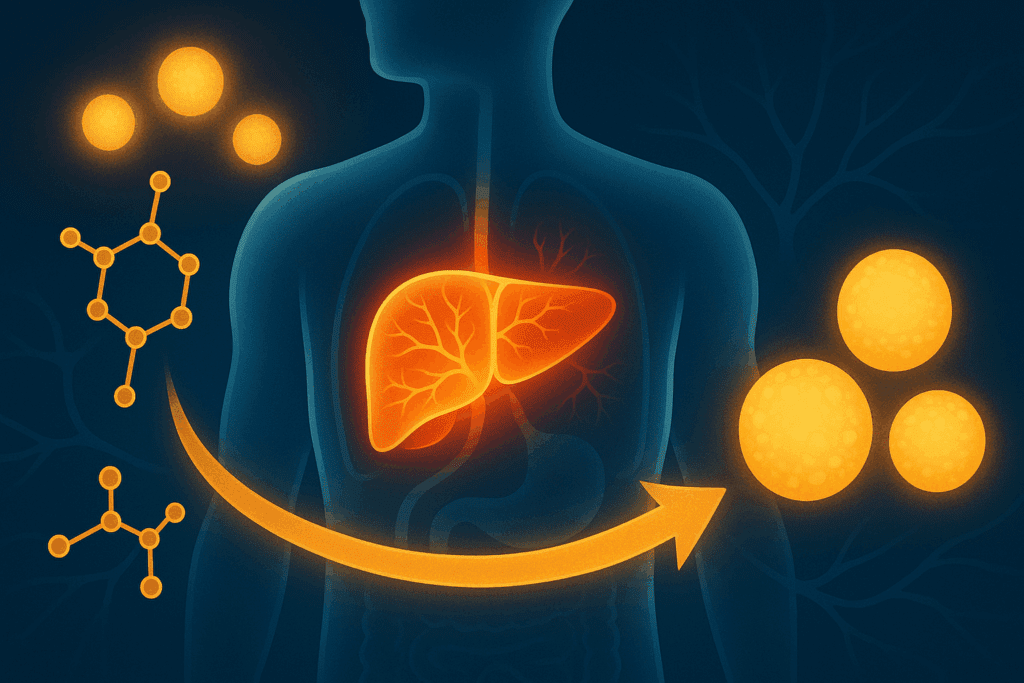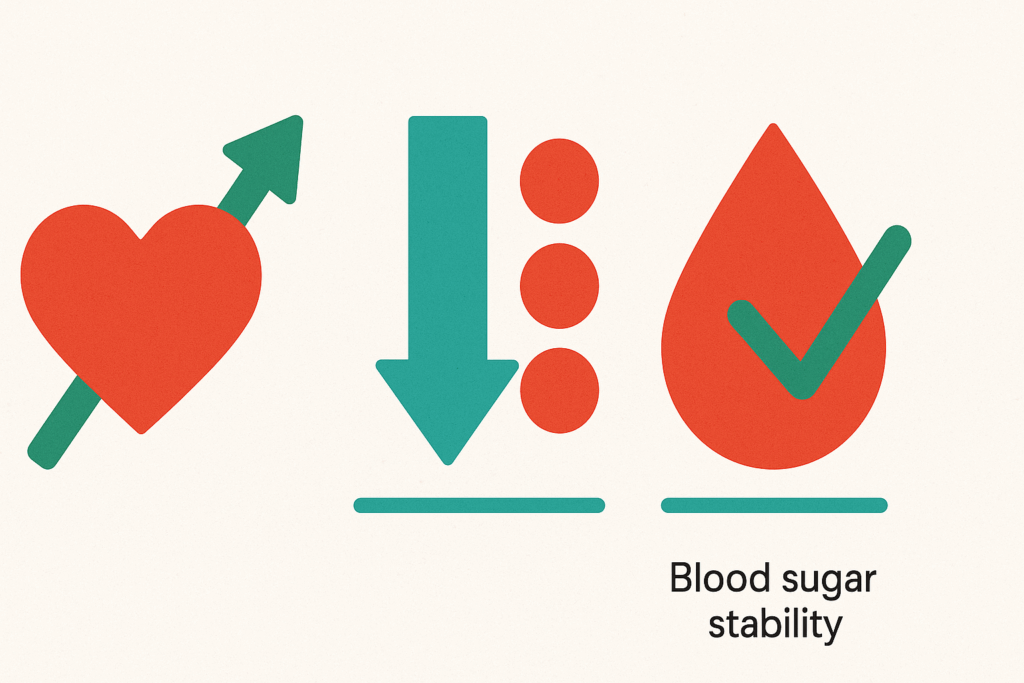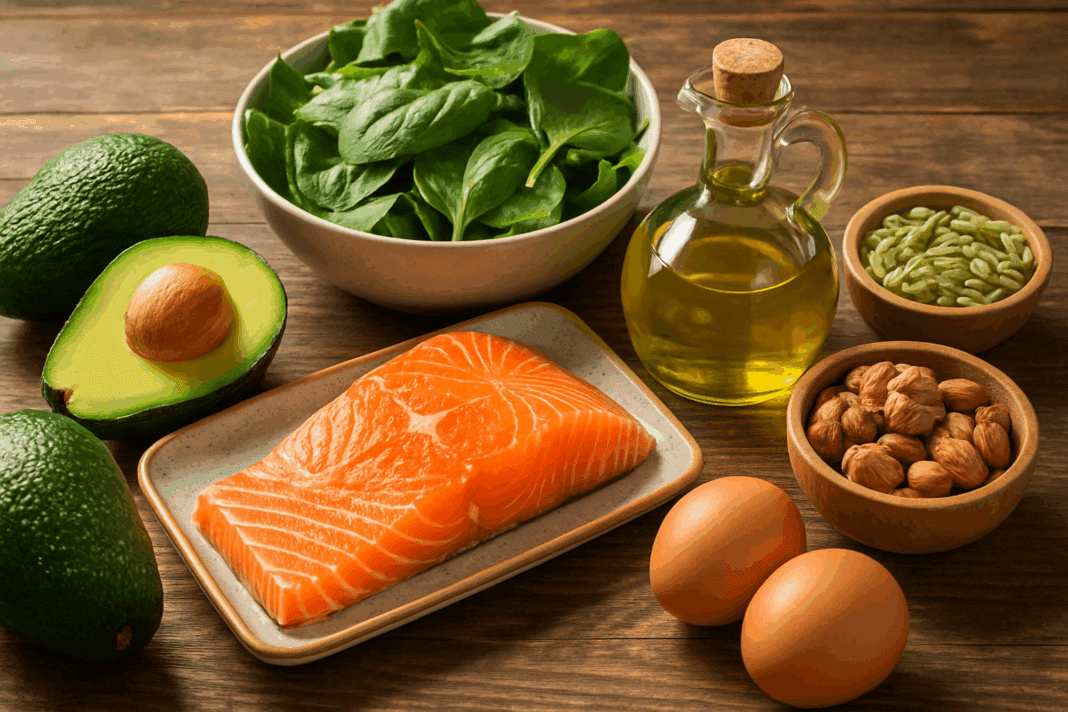In the evolving landscape of nutritional science, the conversation around what constitutes a healthy diet continues to shift. While traditional dietary guidelines have long emphasized low-fat, high-carbohydrate eating patterns, an increasing body of research has cast new light on the potential benefits of high fat low carb foods. Once met with skepticism, these foods now lie at the heart of a nutritional movement that challenges decades of conventional wisdom. The low carb high fat diet, sometimes broadly categorized under ketogenic or modified Atkins-style plans, proposes that reducing carbohydrate intake while embracing healthy fats may support more than just weight management. It may also yield metabolic improvements, reduced inflammation, and enhanced cognitive performance.
This shift is not without controversy. Critics warn against the overconsumption of saturated fats, while advocates point to nuanced distinctions between fat types and the body’s ability to adapt to different fuel sources. For those seeking a dietary plan rooted in metabolic efficiency and long-term wellness, understanding the science, benefits, risks, and practical applications of a low carb diet high fat diet is essential. The conversation is no longer about whether fat is good or bad—it’s about what kinds of fat, what quantity, and in what context.
You may also like: Is the Keto Diet Safe or Dangerous? What Experts Say About the Risks, Benefits, and Basics of the Ketogenic Diet

Understanding the Science Behind High Fat Low Carb Diets
To grasp the true potential of high fat low carb foods, it’s important to explore the underlying metabolic processes involved. Carbohydrates are the body’s preferred energy source because they can be quickly broken down into glucose. However, when carbohydrates are restricted, the body transitions into a metabolic state known as ketosis, wherein it burns fat for energy instead. This shift prompts the liver to produce ketone bodies—alternative fuel sources that can efficiently power both the brain and muscles.
Ketosis has been shown to offer numerous benefits, including improved insulin sensitivity, stabilized blood sugar levels, and enhanced mitochondrial function. It may also encourage more consistent energy throughout the day, avoiding the spikes and crashes commonly associated with carbohydrate-heavy diets. While a high fat no carb foods approach may sound extreme, many practitioners of ketogenic diets gradually adjust their intake to suit their individual tolerance and goals, often hovering around 20 to 50 grams of net carbohydrates per day.
By reducing the dietary reliance on carbohydrates and increasing fat consumption—especially from unsaturated sources like olive oil, avocados, nuts, and fatty fish—the body becomes more adept at fat oxidation. This metabolic adaptation, sometimes referred to as fat-adapted metabolism, can significantly enhance endurance performance, reduce hunger, and help regulate hormones related to satiety and metabolism, such as leptin and ghrelin.

Weight Loss Potential of a Low Carb High Fat Diet
The popularity of low carb high fat diets is largely tied to their effectiveness in promoting weight loss. Numerous clinical trials and real-world studies have demonstrated that individuals following such diets often experience more rapid and sustained weight loss compared to those on low-fat, calorie-restricted regimens. One of the key drivers behind this success is appetite suppression. Fats are more satiating than carbohydrates, and when paired with adequate protein, they promote a sense of fullness that naturally reduces caloric intake.
In addition to appetite regulation, the hormonal impact of a low carb and fat diet plays a significant role in its weight loss potential. Lower insulin levels, achieved by reducing carbohydrate intake, facilitate the release of stored fat from adipose tissues. This allows the body to burn fat more efficiently and may reduce visceral fat accumulation, which is closely linked to increased risk of cardiovascular disease and metabolic syndrome.
It is also worth noting that the thermic effect of food—the energy required for digestion and absorption—is slightly higher for protein and fat compared to carbohydrates. This can create a modest but meaningful metabolic advantage. However, the most compelling aspect for many is the sustainability factor. Because meals centered around high fat low carb foods often feel indulgent and satisfying, individuals may find it easier to adhere to this way of eating over the long term, increasing the likelihood of lasting success.

Metabolic Health Benefits Beyond Weight Loss
Beyond its role in weight management, a low carb diet high fat diet may confer significant benefits to metabolic health. Multiple studies have shown improvements in markers such as fasting insulin, triglycerides, HDL cholesterol, and inflammatory biomarkers. Reducing carbohydrate intake may lower blood sugar variability and improve glycemic control, which is particularly beneficial for individuals with type 2 diabetes or insulin resistance.
The impact on lipid profiles has been particularly surprising. Although critics have long raised concerns that high fat intake could elevate LDL cholesterol, emerging evidence suggests that low carb high fat diets tend to increase the size and buoyancy of LDL particles, making them less likely to penetrate arterial walls. At the same time, they frequently boost HDL cholesterol—the “good” cholesterol—and reduce triglycerides, creating a more favorable cardiovascular risk profile overall.
There’s also growing interest in the neuroprotective effects of ketogenic-style eating. Some researchers have proposed that ketone metabolism may offer therapeutic potential in neurological conditions like epilepsy, Alzheimer’s disease, and Parkinson’s disease. While more studies are needed, the anti-inflammatory and mitochondrial-supporting properties of ketones point to a broader spectrum of benefits that extend far beyond body weight.

Practical Applications and Food Choices
Adopting a high fat low carb eating pattern doesn’t have to be restrictive or monotonous. In fact, many followers find it to be a culinary awakening, rich in flavor and variety. Emphasizing whole foods like fatty fish, pasture-raised meats, cage-free eggs, nuts, seeds, non-starchy vegetables, olives, and high-quality oils can provide a nutrient-dense foundation for the diet. For those seeking high fat no carb foods specifically, options such as MCT oil, butter, ghee, and certain cheeses can help increase fat intake without adding carbohydrates.
It’s important, however, to prioritize food quality. A low carb and fat diet built on processed meats, hydrogenated oils, and artificial sweeteners will not deliver the same health benefits as one rooted in whole, minimally processed foods. Nutrient density matters—leafy greens, cruciferous vegetables, and low-glycemic fruits like berries can still play a role in moderation, offering antioxidants and fiber to support gut and immune health.
Meal planning, especially for those new to this style of eating, may initially require some adjustment. Tracking macronutrient intake can be a helpful tool to ensure proper ratios—typically about 70–75% fat, 20–25% protein, and 5–10% carbohydrates. Over time, many individuals find they can intuitively balance their meals without meticulous measurement, relying instead on internal cues of hunger and satiety.

Common Challenges and How to Overcome Them
Despite its many benefits, transitioning to a low carb diet high fat diet can present some challenges, particularly in the initial adaptation phase. Known colloquially as the “keto flu,” some individuals may experience symptoms such as fatigue, headache, irritability, and muscle cramps as the body shifts from burning glucose to burning fat. These symptoms are often temporary and can be alleviated by increasing water and electrolyte intake, especially sodium, potassium, and magnesium.
Social situations and dining out can also pose difficulties. Many restaurant dishes are centered around high-carb staples like bread, pasta, and rice. However, with a bit of creativity and communication, it’s usually possible to customize meals—opting for protein-rich dishes, extra vegetables, and healthy fats while skipping the starches. Bringing snacks or planning ahead can also mitigate the temptation to veer off course.
Psychological barriers can be just as impactful. Decades of low-fat dietary messaging may lead to a lingering fear of fats, particularly saturated fats. Educating oneself about the latest evidence, and understanding the difference between harmful trans fats and beneficial fats from whole-food sources, can help rebuild a healthy relationship with dietary fat. For many, working with a nutritionist or healthcare provider familiar with low carb high fat diets can provide reassurance, support, and personalized guidance.

High Fat Low Carb Diets in Clinical Practice
The clinical application of high fat low carb diets has expanded in recent years, with physicians and dietitians increasingly recommending this approach for patients with metabolic syndrome, obesity, type 2 diabetes, and even polycystic ovary syndrome (PCOS). These conditions often share an underlying feature of insulin resistance, making carbohydrate restriction a logical therapeutic strategy.
In clinical settings, personalized nutrition plans are crafted based on individual biomarkers, goals, and preferences. Some patients may thrive on strict ketogenic protocols, while others benefit from more moderate carbohydrate reduction. Importantly, this dietary approach is not one-size-fits-all, and close monitoring is essential—especially for individuals taking blood sugar-lowering medications or managing chronic conditions.
Health practitioners also emphasize the importance of monitoring lipid profiles, kidney function, and micronutrient levels when following a low carb and fat diet. Ensuring adequate intake of magnesium, potassium, calcium, and fiber is crucial, particularly when certain food groups like fruits and whole grains are minimized. Supplementation may be considered when necessary, and regular follow-up helps ensure safety and effectiveness over time.

The Role of Exercise and Lifestyle Synergy
Nutrition does not operate in isolation, and the effects of a low carb high fat diet are often magnified when paired with other health-supportive habits. Physical activity, particularly resistance training and aerobic exercise, complements the metabolic effects of a fat-adapted state by improving insulin sensitivity, preserving lean muscle mass, and enhancing mitochondrial density. Together, these adaptations contribute to greater metabolic flexibility—the body’s ability to efficiently switch between fuel sources based on availability and demand.
Sleep quality, stress management, and circadian rhythm alignment also influence how the body responds to any diet. Poor sleep and chronic stress can elevate cortisol, disrupt hunger hormones, and impair glucose regulation, potentially offsetting the benefits of a well-structured nutritional plan. For individuals embracing a high fat low carb lifestyle, optimizing these variables can create a powerful synergy that accelerates progress and supports long-term wellbeing.
Mindful eating and self-awareness play key roles in sustainability. Developing intuitive eating skills—such as recognizing true hunger versus emotional cravings—can help individuals stay attuned to their body’s needs and avoid both under- and overeating. This mindfulness, combined with a clear understanding of nutritional principles, transforms the diet from a temporary fix into a long-term lifestyle.
Looking Ahead: Future Research and Evolving Perspectives
As interest in high fat low carb foods continues to grow, so too does the research landscape. Ongoing clinical trials are exploring how these diets affect different populations, including athletes, older adults, and those with autoimmune diseases. Longitudinal studies will be especially valuable in evaluating the long-term effects of sustained carbohydrate restriction on cardiovascular health, bone density, and cognitive function.
Emerging fields like nutrigenomics—the study of how genes influence individual responses to nutrients—promise to make personalized low carb and fat diet recommendations even more precise. Not everyone processes fat and carbohydrates the same way, and understanding genetic variants may help tailor interventions for optimal results. Furthermore, the role of the gut microbiome in mediating the effects of dietary fat is an area of intense scientific interest. Preliminary evidence suggests that a high fat low carb eating pattern may alter microbial diversity in ways that influence inflammation, immunity, and nutrient absorption.
Despite the remaining questions, one thing is clear: high fat no carb foods and low carb high fat diets are no longer fringe ideas. They are part of a broader movement toward individualized, evidence-based nutrition that challenges outdated dogma and empowers people to make informed choices.
Frequently Asked Questions: High Fat Low Carb Diets and Metabolic Health
1. Can a high fat low carb diet help support hormonal balance in women? Yes, many women have reported improved hormonal balance after switching to a high fat low carb diet, particularly those dealing with conditions like polycystic ovary syndrome (PCOS) or perimenopause. The mechanism lies in reduced insulin levels, which can positively influence the production of androgens and estrogen. While most conversations around low carb high fat diets focus on weight loss, hormone regulation is a critical but often overlooked benefit. The inclusion of high fat low carb foods like avocados, grass-fed butter, and eggs provides essential fatty acids and fat-soluble vitamins that support hormone synthesis. In clinical practice, women who follow a low carb and fat diet consistently report fewer hormonal fluctuations, better mood stability, and more regular menstrual cycles.
2. Are there potential long-term psychological benefits associated with low carb high fat diets? Beyond physical health, psychological resilience may also improve with a low carb diet high fat diet due to the stabilization of blood glucose and reduction in inflammatory cytokines. Fluctuations in blood sugar can impact neurotransmitter balance, which in turn affects mood, anxiety levels, and cognitive function. Emerging research suggests that high fat no carb foods may increase levels of GABA, a calming neurotransmitter that supports emotional regulation. Furthermore, the feeling of control that comes from adhering to a structured eating plan can enhance self-efficacy, a key predictor of mental wellbeing. While more long-term studies are needed, early evidence indicates that consistent use of high fat low carb foods can contribute to a more balanced and positive mental state.
3. How does a low carb and fat diet impact physical performance for athletes? Contrary to the belief that carbohydrates are essential for athletic performance, many endurance athletes are exploring the benefits of a low carb high fat diet. Once fat-adapted, the body can efficiently utilize fat as a primary energy source, sparing glycogen and reducing the frequency of energy crashes during prolonged activity. This is especially relevant in ultra-endurance sports, where the reliance on consistent energy from high fat low carb foods can improve stamina and reduce gastrointestinal distress. Strength athletes can also benefit by maintaining muscle mass through adequate protein intake while using fats for energy. However, the transition period from glucose to fat metabolism can take several weeks, during which performance may temporarily decline.
4. Are high fat no carb foods appropriate for people managing cardiovascular risk? The relationship between dietary fat and heart health is more nuanced than once believed. When high fat no carb foods are sourced from nutrient-dense options—like omega-3-rich salmon, olive oil, and pasture-raised meats—they can actually support heart health by improving HDL levels and reducing triglycerides. A well-structured low carb and fat diet often leads to weight loss, lower blood pressure, and better glycemic control, all of which reduce cardiovascular risk. That said, not all fats are created equal. Trans fats and industrial seed oils should be strictly limited, while monounsaturated and polyunsaturated fats from whole food sources should be prioritized to support vascular integrity and reduce inflammation.
5. Can a low carb diet high fat diet be sustainable in cultures with carb-heavy cuisines? Adapting to a low carb high fat diet in a culture where rice, bread, or legumes are dietary staples can be challenging—but not impossible. Creative substitutions and mindful planning can help preserve cultural identity while aligning with metabolic goals. For instance, using cauliflower rice or zucchini noodles can mimic the texture and satisfaction of traditional dishes. Incorporating culturally relevant high fat low carb foods, such as coconut oil in South Asian cooking or cheese and olives in Mediterranean meals, can bridge the gap. Success often depends on education and support, including access to culturally adapted meal plans that maintain flavor and tradition while minimizing carbohydrate intake.
6. What are some emerging innovations in the low carb food industry? The rise of interest in low carb and fat diets has catalyzed a wave of innovation in the health food sector. From high-fat, no-sugar chocolate bars to keto-certified snacks made with almond flour, the marketplace is evolving to meet consumer demand. Some companies are developing synthetic starch blockers and ketone esters to enhance the effects of a high fat low carb diet without requiring extreme dietary restrictions. Additionally, plant-based options that fit within a low carb high fat framework are becoming more prevalent, including coconut yogurts, flaxseed crackers, and nut-based dairy alternatives. These innovations make it easier for individuals to maintain a low carb diet high fat diet without feeling deprived or socially isolated.
7. How does gut microbiome diversity change on a low carb high fat diet? While traditionally thought to thrive on fiber-rich plant foods, the gut microbiome also adapts to diets centered on high fat low carb foods. Although some fiber types may be reduced, other prebiotic sources like leafy greens, chia seeds, and fermented vegetables can support microbial diversity. Additionally, ketone bodies themselves may have antimicrobial properties that selectively support beneficial bacteria. Long-term followers of a low carb and fat diet often report reduced bloating and improved digestion, likely due to fewer fermentable carbohydrates and improved bile flow. Research is ongoing, but there’s growing evidence that microbiome balance on a high fat low carb diet is more influenced by food quality and variety than simply macronutrient ratios.
8. Is it safe to follow a high fat low carb diet during pregnancy or breastfeeding? Pregnancy and lactation require careful nutritional planning, but a modified low carb diet high fat diet may be safe under proper supervision. The emphasis should be on whole-food fats, adequate protein, and sufficient micronutrients such as folate, choline, and iron. High fat no carb foods like eggs, fatty fish, and full-fat dairy can be particularly beneficial for fetal brain development. That said, extreme carb restriction is not advised during pregnancy, especially in the first trimester when rapid cell division demands glucose. Many women opt for a nutrient-dense moderate-carb, high fat approach during this life stage to balance metabolic stability with fetal needs.
9. How can someone break through a plateau on a low carb and fat diet? Weight loss stalls are common, even on a low carb high fat diet, but they often have correctable causes. One common reason is a gradual increase in caloric intake, particularly from energy-dense high fat low carb foods that don’t always trigger strong satiety signals. Incorporating intermittent fasting or cyclical carbohydrate refeeding can help reset metabolic pathways. Additionally, addressing non-dietary factors like poor sleep, elevated stress hormones, and lack of exercise variety can reignite progress. A comprehensive evaluation that includes food tracking, blood work, and lifestyle assessment often reveals the most effective path forward without abandoning the low carb and fat diet principles.
10. What role does social support play in succeeding with a low carb high fat lifestyle? Adopting a high fat low carb eating pattern can be socially isolating without proper support. Family habits, cultural expectations, and workplace environments can all influence dietary success. Joining online communities, enlisting a health coach, or participating in group-based low carb programs can dramatically improve adherence. Sharing meals with like-minded individuals and discussing recipes or setbacks normalizes the lifestyle and builds confidence. Ultimately, social support transforms the low carb diet high fat diet from a temporary challenge into a sustainable lifestyle change that enhances both physical and emotional wellbeing.
Final Thoughts on Embracing a Low Carb and Fat Diet for Health and Longevity
For individuals seeking a sustainable approach to wellness, the shift toward high fat low carb foods offers a promising avenue. By focusing on metabolic efficiency, hormonal balance, and nutrient-dense whole foods, this eating pattern has demonstrated its potential to support both weight loss and better metabolic health. While it’s not a one-size-fits-all solution, the low carb high fat diet provides a flexible framework that can be tailored to individual needs and lifestyles.
Integrating high fat no carb foods into everyday meals can promote satiety and energy stability, while minimizing blood sugar fluctuations. When paired with mindful lifestyle practices, a low carb and fat diet becomes more than a nutritional strategy—it becomes a foundation for lifelong health. As research continues to evolve, so too will our understanding of how best to apply these principles in a safe, effective, and personalized way.
The journey toward better health is rarely linear, but it is one worth pursuing with curiosity, courage, and a willingness to question the status quo. Embracing the science and practicality of high fat low carb foods may be one of the most empowering steps an individual can take on the path to wellness, energy, and resilience.
Further Reading:
Low-Carbohydrate High-Fat Diet: A SWOC Analysis
The LCHF Diet Plan: A Detailed Beginner’s Guide
What to know about low-carb, high-fat diets


